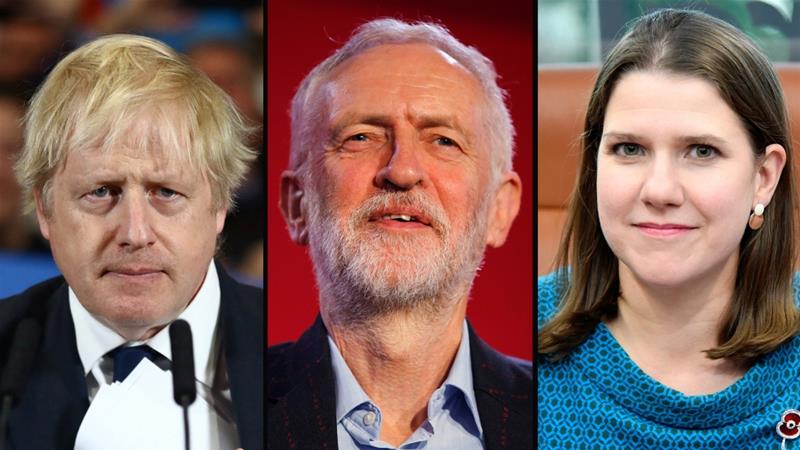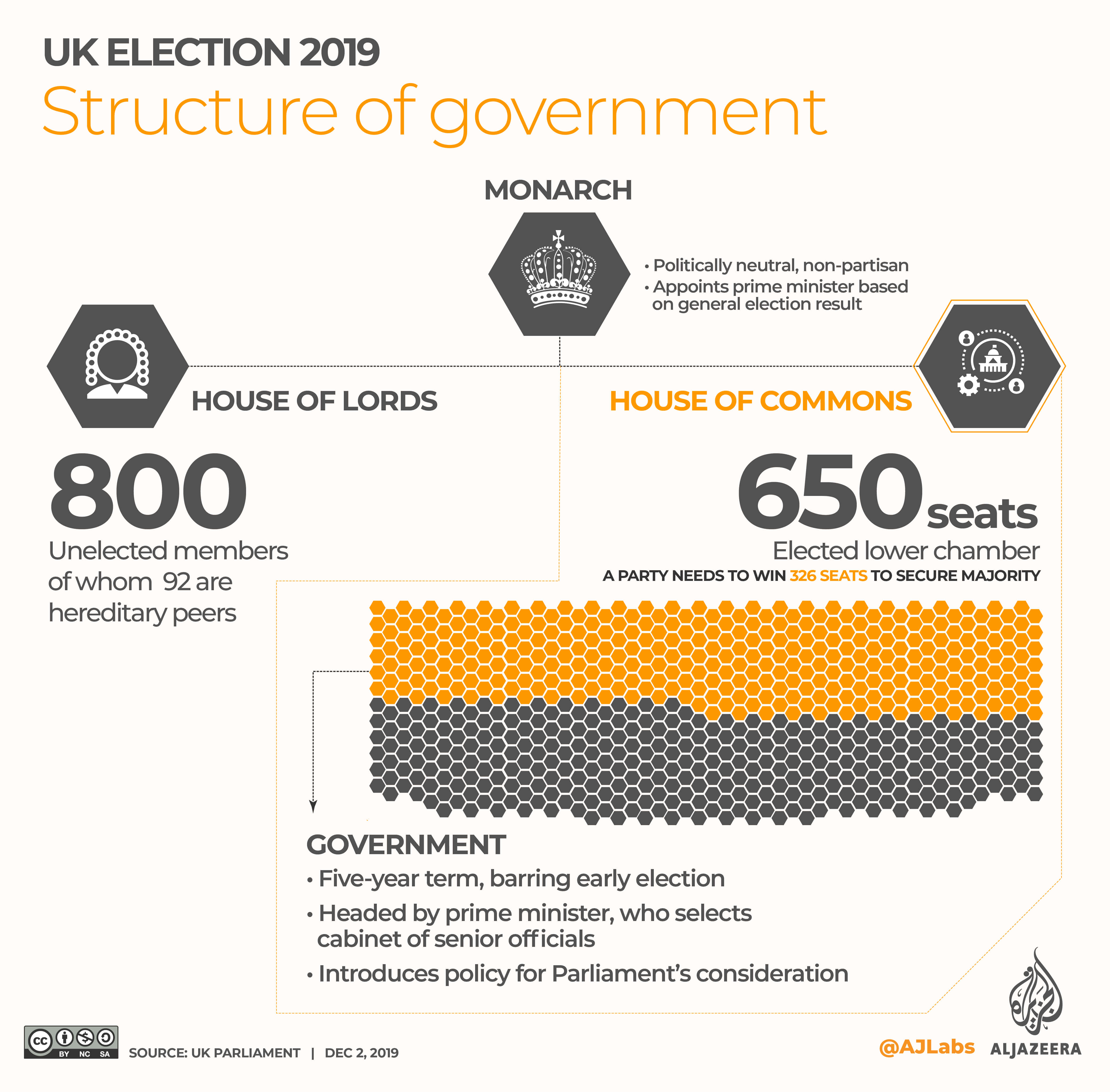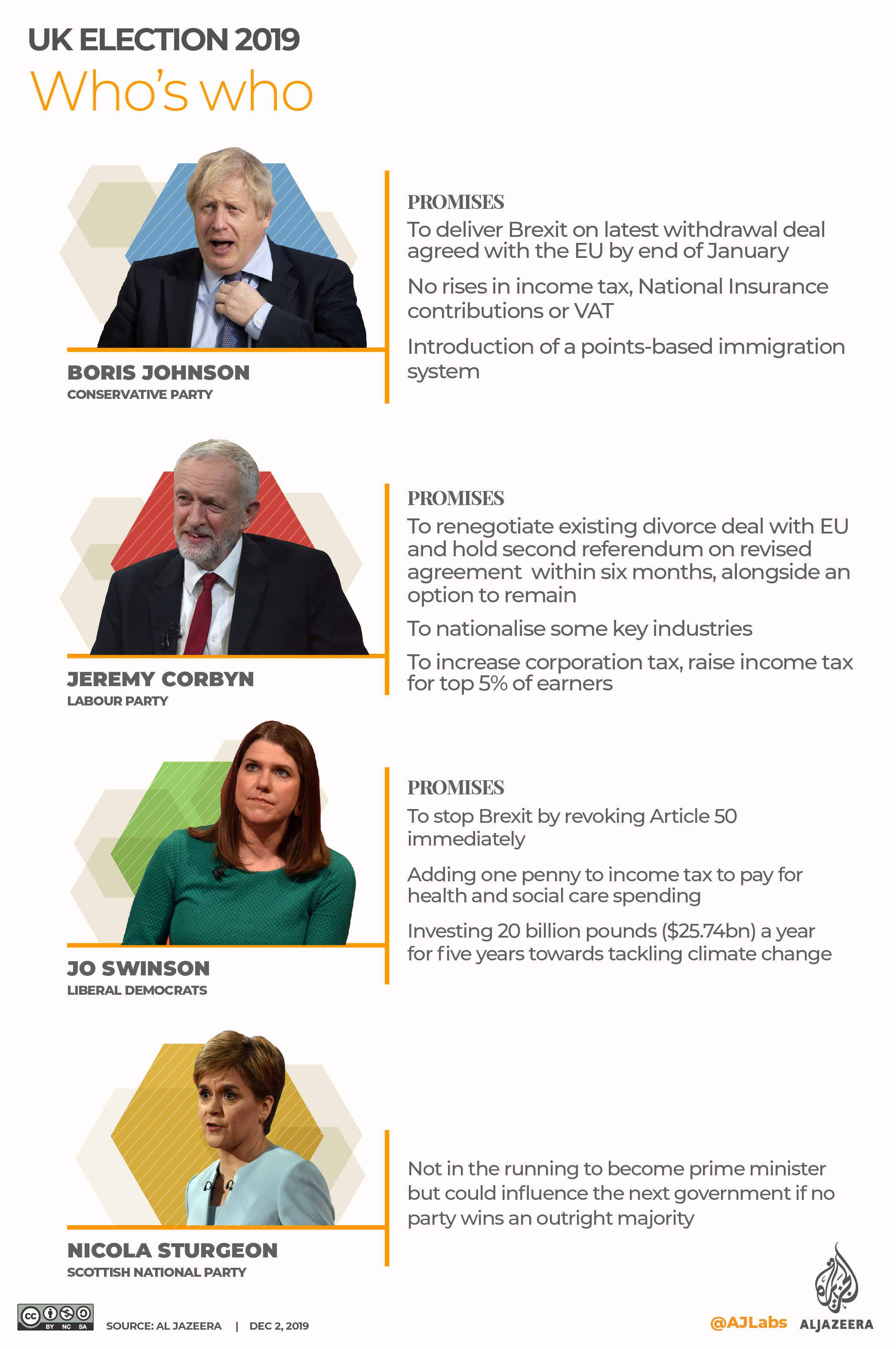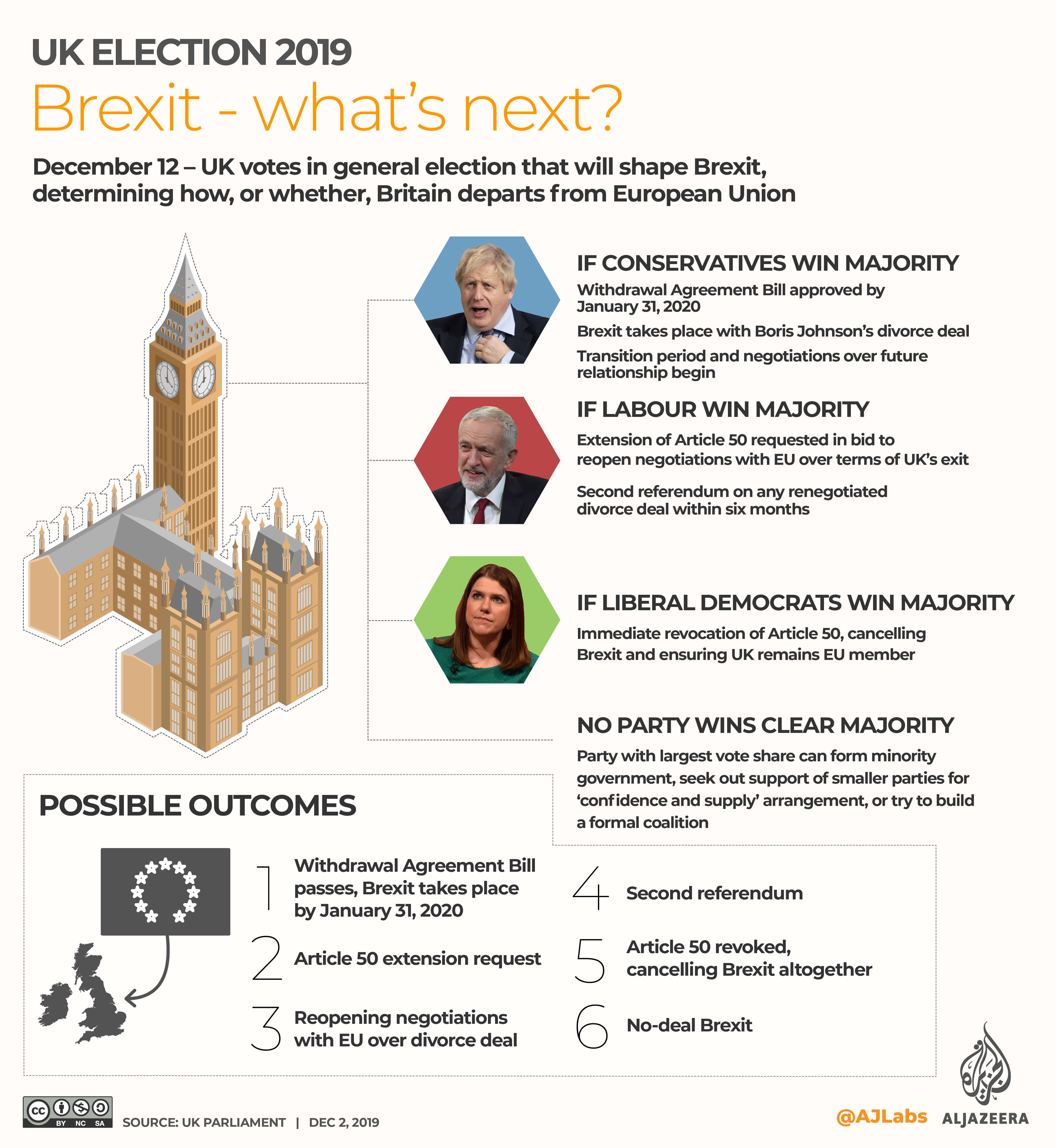
UK votes on Thursday: What you should know in 500 words
Electorate is deeply divided as UK braces for snap poll called to break political deadlock over Brexit.
Britons will head to the polls on Thursday, December 12 for a snap general election, which is hoped to end the country's Brexit impasse.
Prime Minister Boris Johnson's Conservative Party and Jeremy Corbyn's main opposition Labour Party present widely different proposals for solving the political crisis, which continues to rumble on after 52 percent voted to leave the European Union in a June 2016 referendum.
Here is what you need to know:
What's happening?
Voters in 650 constituencies across the United Kingdom will elect a minister of parliament to the lower chamber House of Commons via the first-past-the-post system.
To win a seat, candidates need more votes than any of their competitors.
A party needs to win 326 seats in order to secure a majority in the House of Commons.
Parliament's upper chamber, the House of Lords, is unelected, and rather nominated by some main parties.
If no party achieves a majority, there will be a hung parliament. The party with the largest vote share may form a minority government, seek out support from smaller parties for a "confidence and supply" arrangement, or try to build a formal coalition.

Brexit is the main issue for voters, but a slowing economy, creaking health and social care provision, the unfolding climate crisis, and law and order are among other key concerns.
On polling day, voting opens at 7:00 GMT and ends at 22:00 GMT. Final results are expected to be declared in the early hours of Friday, December 13.
Who is expected to win?
A disclaimer to begin: Polling agencies have been wrong before - remember the EU referendum?
But that said, the Conservative Party appears set to win most votes and possibly a majority of seats.
The party is tracking 10 percentage points ahead of its nearest rival, left-wing Labour.
Forty-three percent of voters say they would vote Conservative if an election were held tomorrow, according to a recent YouGov poll.
That could translate into the Conservatives winning 359 seats in the Commons, according to YouGov, compared with 211 for Labour.

Among the smaller parties, the pro-European, centrist Liberal Democrats are predicted to win 14 percent and 13 seats in Parliament. The Scottish National Party (SNP), which only fields candidates for the 59 constituencies in Scotland, is projected to win 43 seats, but only 3 percent of all votes cast.
Where might the vote leave Brexit?
Johnson has promised to "get Brexit done" and pass his withdrawal agreement through Parliament by the end of January if the Conservatives scoop a majority.
However, even if Parliament passes the existing withdrawal agreement by that deadline, a potentially gruelling negotiation over the UK and the EU's future relationship will begin as the transition period comes into effect.
If Labour wins, it will ask the EU for another Brexit extension to allow time to renegotiate the current withdrawal agreement. Corbyn wants a softer divorce deal based on a new UK-EU customs union and closer EU single market alignment.
Labour's reworked agreement would be put to a legally-binding second referendum within six months, alongside an option to remain in the EU.
